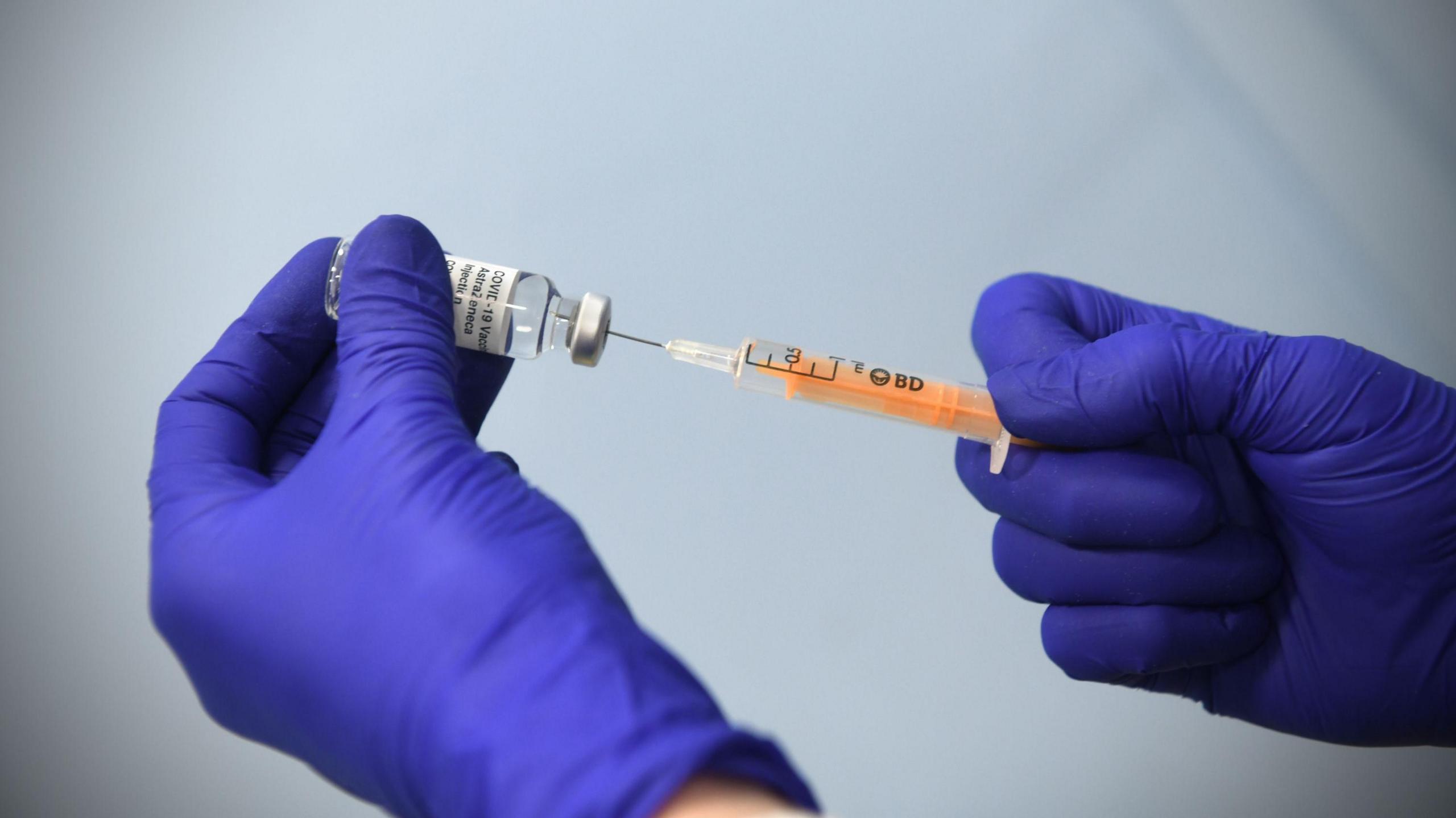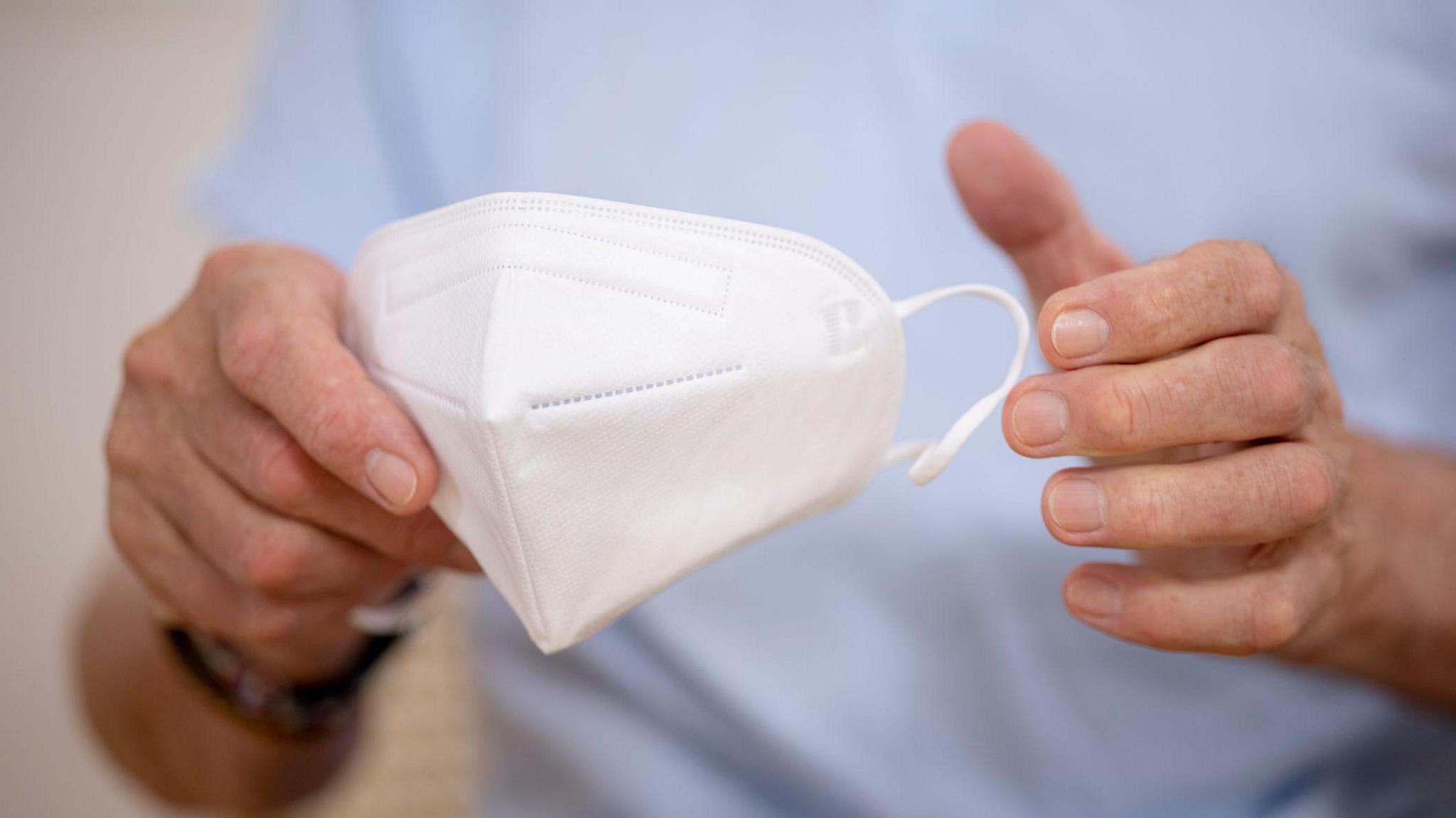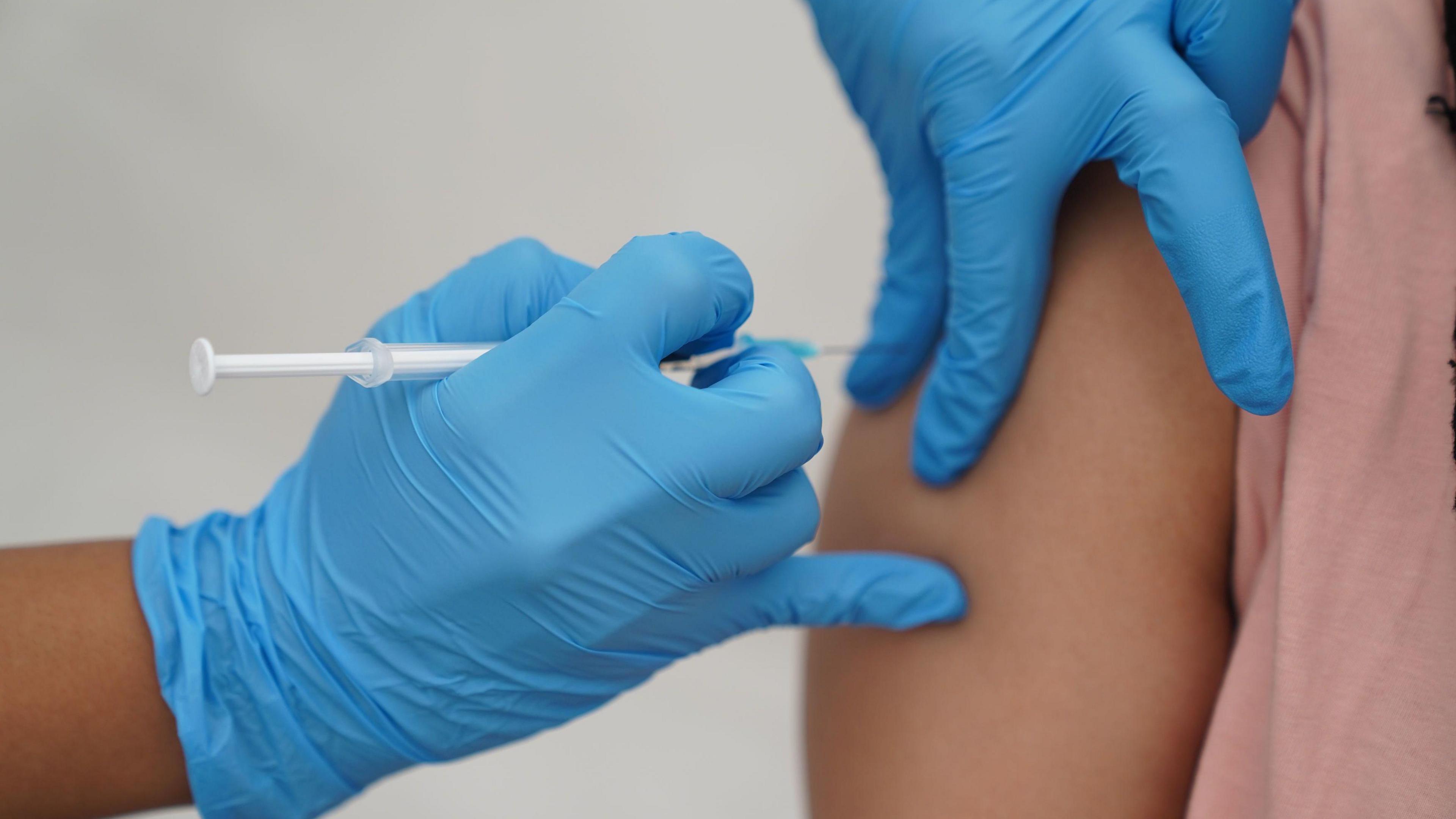City hit by four viruses sees strain on hospitals

NHS leaders say the uptake of vaccines in Birmingham and Solihull is low
- Published
Birmingham has been hit by four different viruses, putting extreme strain on hospital services.
Flu has come earlier and hit harder than in previous years, while cases of Covid-19, respiratory syncytial virus (RSV) and norovirus are increasing.
Hospitals are running at almost 100% capacity across the city, with many patients seriously ill.
The public is being urged to take up vaccinations, if entitled, for their own safety but also to prevent further strain on healthcare.
On Wednesday, there were 275 flu patients in acute beds compared to a peak of 219 last winter.
Many patients require treatment in high dependency or intensive care units.
At Birmingham Women's and Children's Hospital, flu cases have doubled in the past fortnight.
The introduction of norovirus on wards is causing extra problems because patients have to be isolated and so beds are being lost to the system.
A source at the UK Health Security Agency believes the peak of the flu epidemic will not hit for another three weeks.
Vaccination rates across the city are also currently well below the national average.
In Birmingham and Solihull, about a third of those eligible for a flu vaccine have received the vaccination. For pregnant women, it was just 7%.
The uptake of Covid-19 vaccinations is lower, at 28.9%. For RSV, only 36.5% of eligible 75 to 79-year-olds have taken up the available jabs.
Medical directors are urging those eligible to have their vaccinations.
"The last two weeks has seen a huge rise in the number of flu cases across our system," said Dr Clara Day, chief medical officer at NHS Birmingham and Solihull.
"This is making people quite unwell, especially the elderly and vulnerable, and for anyone flu can be a nasty illness; it is more than a 'bad cold'."
She added that a "significant number of people" become seriously unwell and even die due to avoidable virus illness each year.
People were urged not to attend A&E unless absolutely necessary. Instead they should visit a pharmacy, speak to a GP or dial 111.
Figures from earlier this month show ambulances have been waiting for more than an hour outside the trust's three emergency departments at times - and that figure is likely to be worse now.
West Midlands Ambulance Service said staff and volunteers were working exceptionally hard to get to patients as quickly as possible.
"Sadly, we are seeing some patients wait much longer for a response than we would want as a result of hospital handover delays for which we apologise," a spokesperson said.
At Birmingham Community Healthcare NHS Foundation Trust, Dr Robbie Dedi warned flu could be very dangerous.
"By getting vaccinated, you're protecting yourself, those around you, and contributing to a healthier, more resilient community," he said.
There are 350 sites across Birmingham and Solihull that can offer the flu vaccine. The RSV vaccine is available from GPs.
Get in touch
Tell us which stories we should cover in Birmingham and the Black Country
Follow BBC Birmingham on BBC Sounds, Facebook, external, X, external and Instagram.
Related topics
- Published12 December 2024

- Published6 December 2024

- Published4 December 2024
